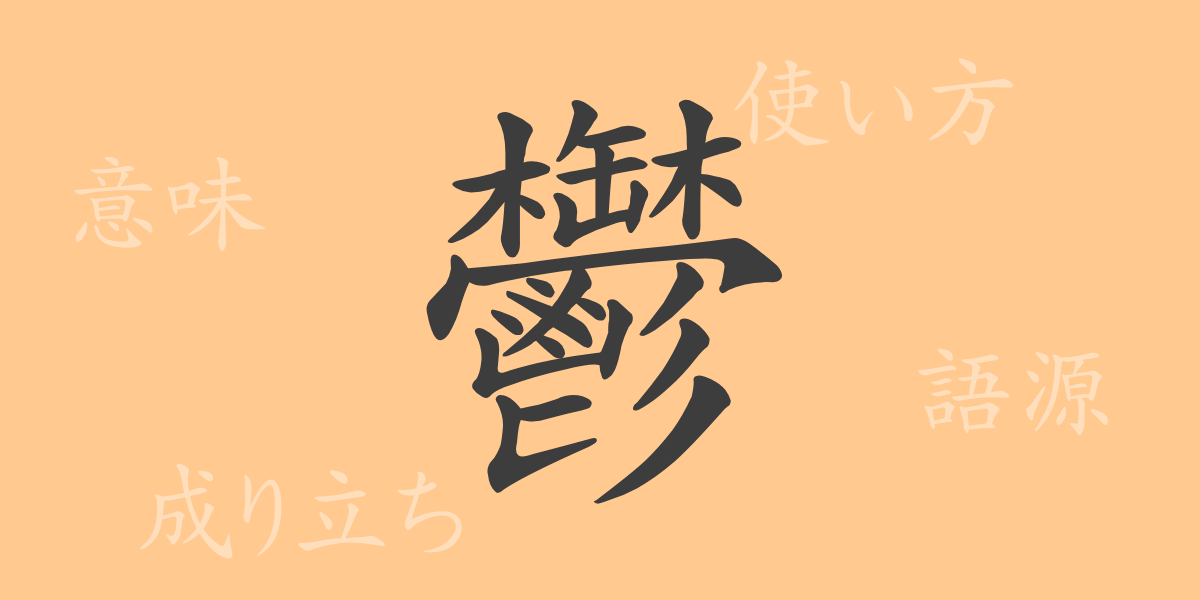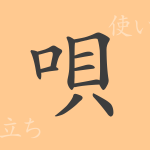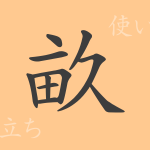“
The beauty of the Japanese language lies in its complexity and richness of expression. One of the common kanji, “”鬱”” (utsu), is known for its intricate structure and deep meaning. In this article, we will explore the history, meaning, and usage behind the kanji “”鬱””. We will also look at how this kanji is rooted in Japanese culture through compound words and idioms.
The Origin of 鬱 (utsu)
The kanji “”鬱”” is a character that originated from ancient China, and its formation is very complex. This kanji is made up of the elements “”木”” ( ki), meaning tree, and “”彡”” (san), indicating bundling, overlapping each other. Additionally, “”心”” ( kokoro), representing the heart or mind, is added to express a suppressed psychological state or the dense growth of trees. Originally, “”鬱”” referred to the state of plants growing so thickly that light cannot penetrate, and from there, it came to represent a state of mind.
The Meaning and Usage of 鬱 (utsu)
In modern Japanese, “”鬱”” is primarily used to express mental oppression or stagnation. It often refers to the mental disorder known as “”うつ病”” (utsubyou), or depression, indicating a state of suffering from a mental illness. It can also be used in the form “”鬱屈”” (ukkutsu) to describe a state of feeling gloomy or having one’s emotions pent up. In literary works, it may also be used to depict a heavy atmosphere or scene.
Reading, Stroke Count, and Radical of 鬱 ( utsu)
The kanji “”鬱”” is one of the most difficult kanji to remember due to its complex reading and structure.
- Reading: On’yomi ( utsu), no specific Kun’yomi.
- Stroke Count: With a total of 29 strokes, it is one of the kanji with the highest stroke count among the common kanji.
- Radical: The radical of 鬱 is “”鬯”” (nioizake), which is very rare and hardly seen in other kanji.
Compound Words, Idioms, and Proverbs Using 鬱 (utsu) and Their Meanings
Words and expressions containing “”鬱”” are used in many situations due to their strong connotations. Here are some examples:
- “”鬱陶しい”” ( uttōshii): An adjective describing a gloomy and depressing state.
- “”鬱金香”” (chūrippu): A type of flower more commonly known as a “”tulip,”” beloved by many for its beauty.
- “”鬱蒼とした”” (ussō to shita): A phrase describing a scene where trees are so thick that it appears dark, expressing a heavy and oppressive feeling of being covered by something.
Conclusion on 鬱 (うつ, utsu)
The kanji “”鬱”” symbolizes the richness of expression in the Japanese language with its complex structure and deep meaning. This kanji, which represents mental heaviness and oppression, is used in a wide range of contexts, including disease names, adjectives describing moods, and descriptions of nature. The high stroke count of 29 seems to reflect the weight of its meaning in the form of the character. Understanding the various aspects of a single kanji in this way can contribute to a deeper understanding of the Japanese language.
“

























